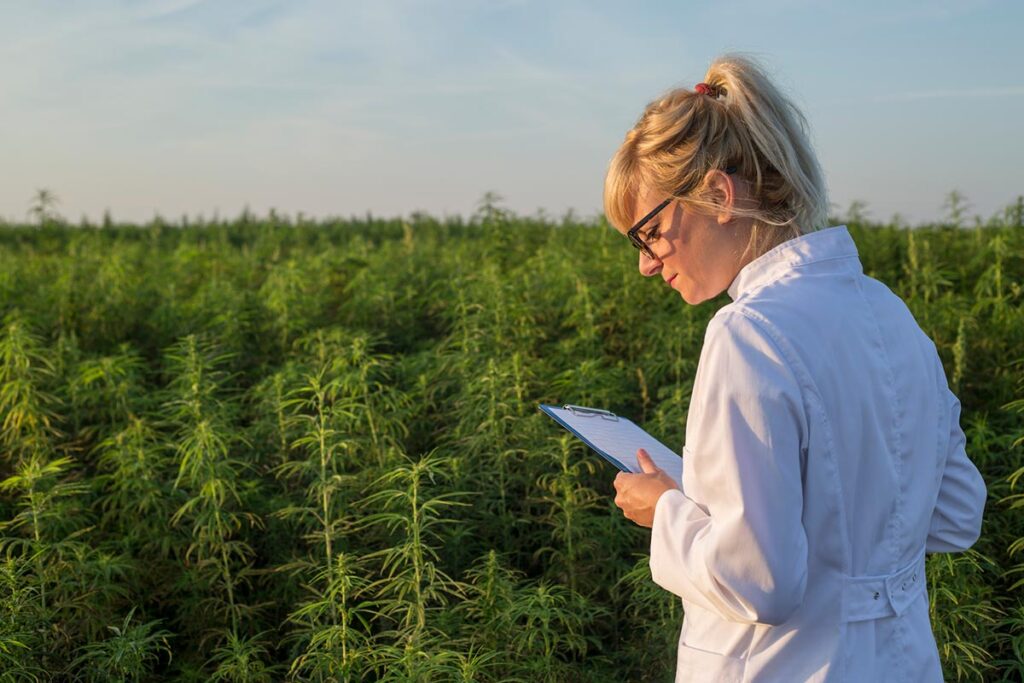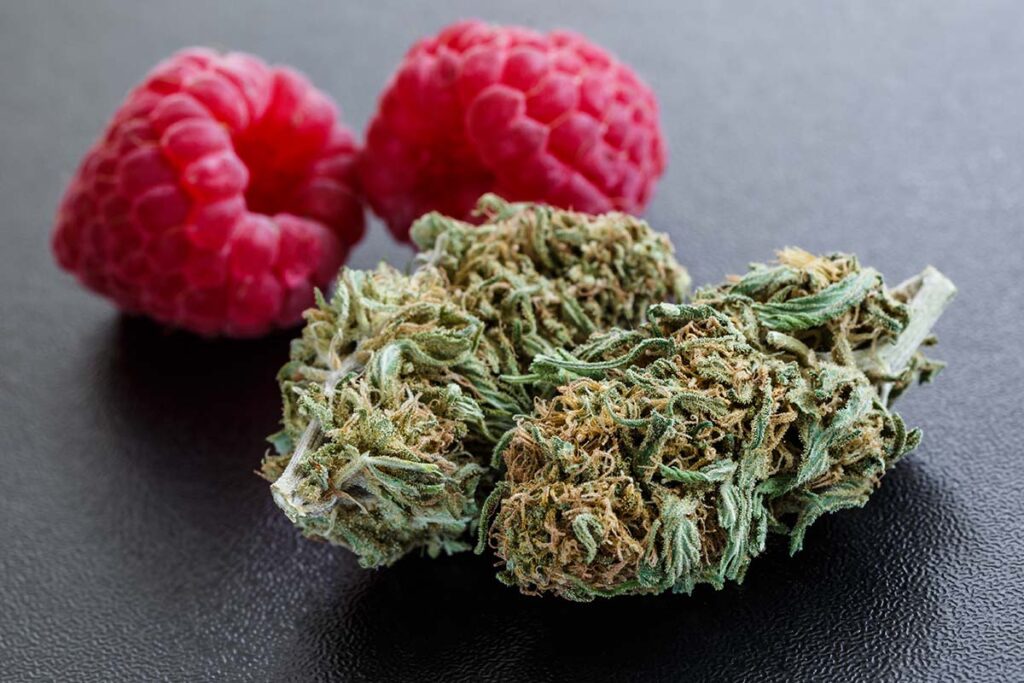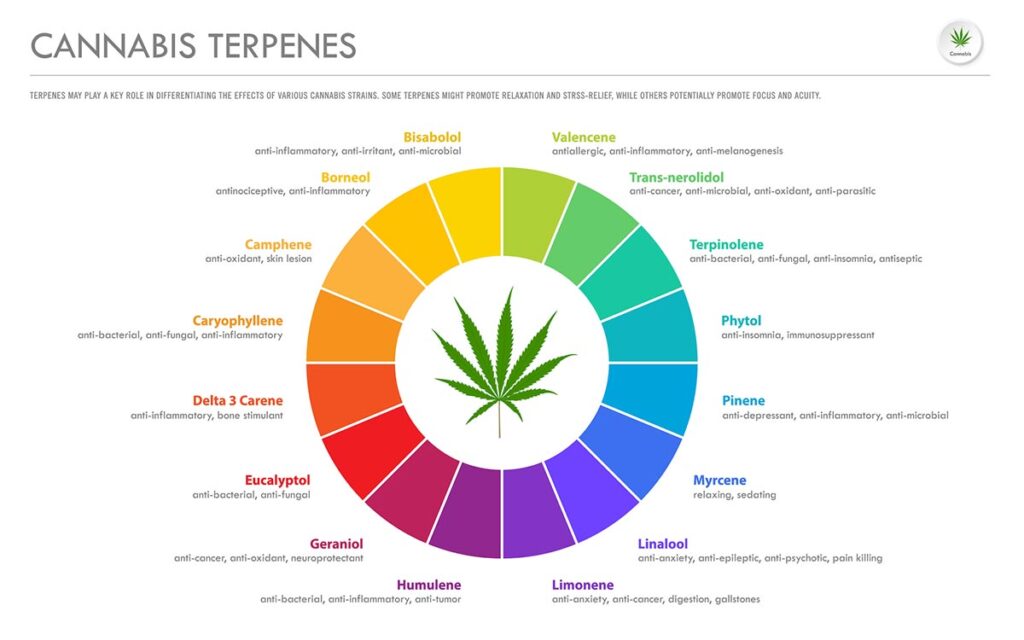Hemp industry booming! Legal changes and consumer demand are some of the factors driving rapid growth. Explore opportunities in this expanding market.
The hemp industry is experiencing a remarkable resurgence, fueled by changing legal landscapes, growing consumer awareness, and a surge in demand for sustainable products.
This shift has spurred significant growth and created a wealth of opportunities for businesses across various sectors.
Let’s examine the driving forces behind this industry’s expansion and uncover its promising future..
The Rise of Hemp: A Market Analysis
In recent years, the hemp market has witnessed unprecedented expansion. This growth is primarily attributed to:
1.Legalization and Regulatory Reforms in the Hemp Industry
A relaxation of hemp-related laws in many jurisdictions has paved the way for increased cultivation and product development.
2.Consumer Demand of Hemp
A growing awareness of hemp’s potential benefits, from wellness to environmental sustainability, has driven consumer interest.
3. Sustainability Focus of Hemp
As consumers seek eco-friendly alternatives, hemp’s low environmental impact has positioned it as a desirable crop.
A Sudden Shift: The 2022 Hemp Production Decline
The U.S. hemp industry experienced a dramatic downturn in 2022, with production value plummeting by 71% compared to the previous year.
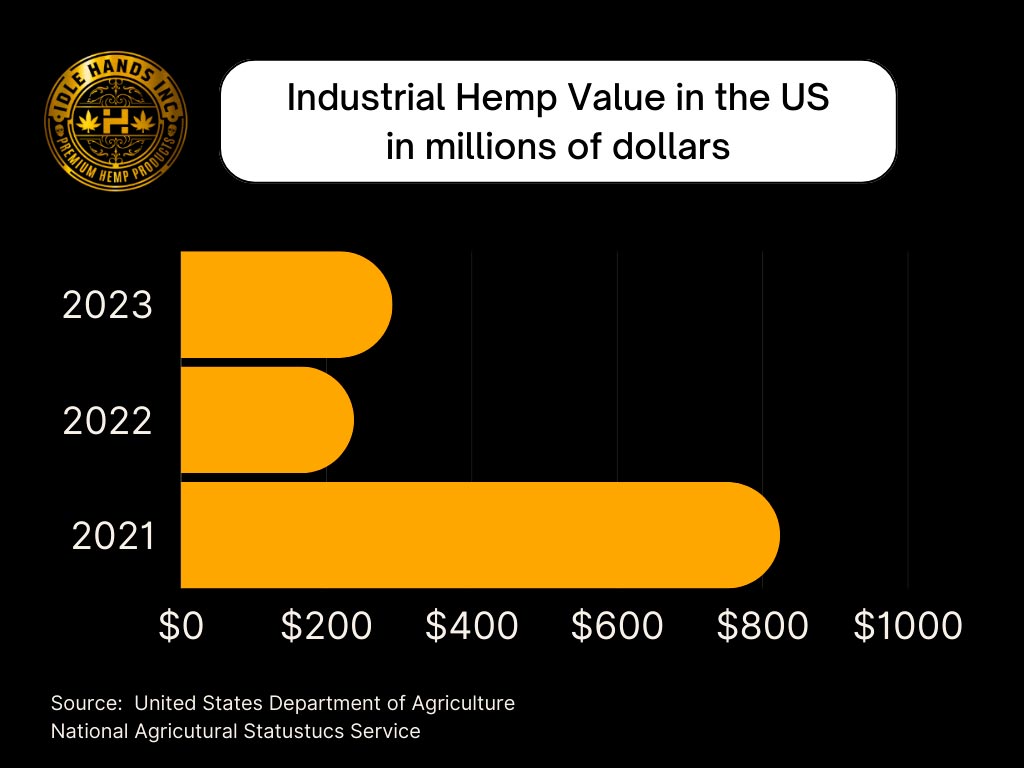
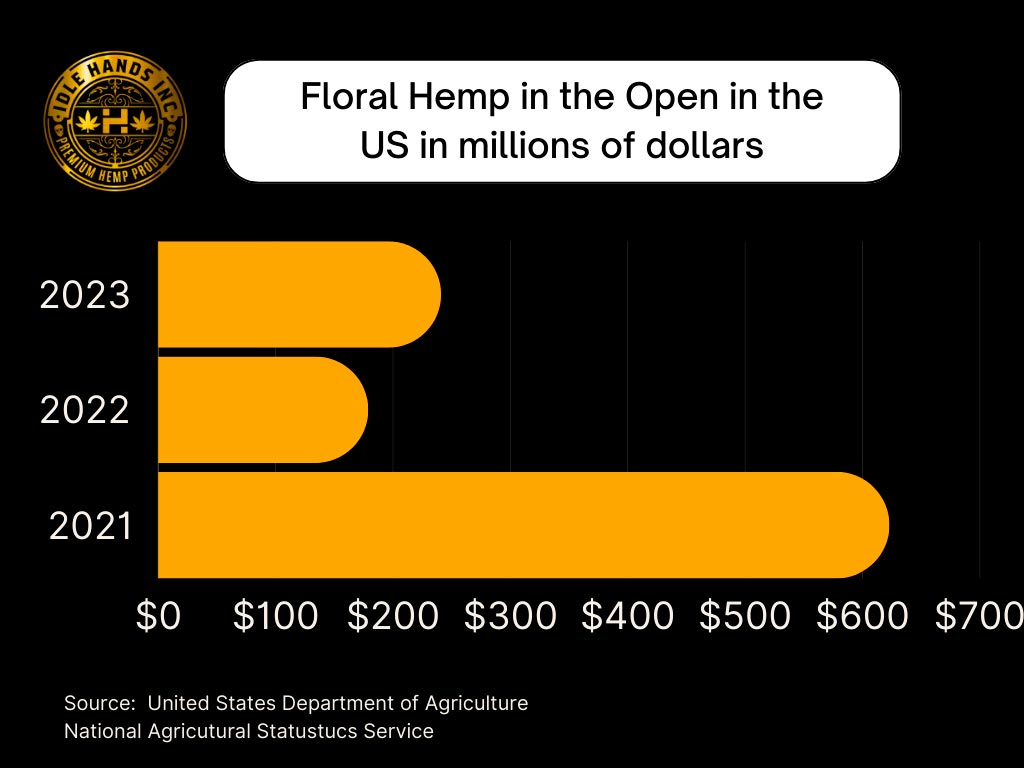
Several factors contributed to this steep decline:
- Market Saturation: The initial boom in 2019 led to a surge in hemp planting, exceeding market demand in 2021. This oversupply caused a significant drop in prices for hemp flower and biomass, making cultivation less profitable for farmers.
- Consumer Demand: Early expectations for CBD products, especially CBD flower, fell short. The anticipated widespread adoption didn’t materialize, leading to a decline in demand for some types of hemp flower.
- Regulatory Challenges: The lack of clear federal regulations around CBD products created an uncertain market environment. This discouraged some potential buyers and investors, further impacting demand.
- Geographic Shifts: As the initial market frenzy subsided, experienced farmers optimized their operations. Some states that initially saw high production levels saw a decrease as farming consolidated in regions with better growing conditions and lower production costs.
- Focus on Quality Over Quantity: The market may be moving towards a focus on high-quality, consistent hemp products. This could lead to a decrease in overall acreage planted, but with a higher value per unit of production.
It’s important to note that this decline may not reflect the industry’s long-term trajectory. As the market matures and stabilizes, we can expect to see a more sustainable growth pattern.
While 2022 was a challenging year, the hemp industry’s resilience and potential for innovation remain strong.
Overall, the dramatic drop in 2022 reflects a maturing market adjusting after an initial boom. The industry may be headed towards a more sustainable model with a focus on quality and specific product types.
A Maturing Market: Industry Consolidation and Specialization
The 2022 downturn signals a maturation of the hemp market, moving from a gold rush mentality to a more sustainable and focused industry. The initial surge in cultivation outpaced consumer demand, leading to market saturation and price declines. However, this correction presents an opportunity for the industry to refine its approach, prioritizing quality over quantity.
A shift towards specialized hemp products and a deeper understanding of consumer needs is likely to drive future growth. By concentrating on specific niches and delivering high-quality, consistent offerings, businesses can establish a stronger foothold in the market. This evolution reflects a natural progression for many industries, and the hemp sector is no exception.
While the overall hemp industry is thriving, specific sub-sectors are experiencing particularly rapid growth:
- CBD Market: The demand for CBD-infused products has skyrocketed, driven by perceived health benefits and wellness trends. This sub-sector offers significant opportunities for businesses in product development, distribution, and retail.
- Hemp Fiber Market: With a focus on sustainability and eco-friendly materials, the hemp fiber market is expanding rapidly. Its applications in textiles, construction, and paper production are driving growth.
- Hemp Paper Market: As consumers seek environmentally friendly alternatives to traditional paper, hemp paper is gaining traction. Its durability, strength, and renewable nature make it an attractive option.
- Wholesale Hemp Flower: A cornerstone of the hemp industry, wholesale hemp flower provides the foundation for a multitude of products. This sub-sector offers consistent demand and opportunities for businesses to supply high-quality flower. Check out our high quality wholesale hemp flower options to connect with new business opportunities.
Opportunities for Businesses
The booming hemp industry presents a myriad of opportunities for businesses of all sizes:
- Wholesalers: Supplying high-quality hemp products to retailers and manufacturers can be highly profitable.
- Manufacturers: Developing innovative hemp-based products across various sectors, from food to textiles, can lead to market leadership.
- Retailers: Offering hemp products can attract environmentally conscious consumers and differentiate your business.
By understanding the trends and growth potential within the hemp industry, businesses can position themselves for success.
Conclusion
The hemp industry is on an upward trajectory. Its rapid growth, driven by consumer demand and regulatory shifts, creates a landscape brimming with opportunities.
By staying informed about market trends and identifying specific niches, businesses can capitalize on this burgeoning sector and achieve long-term success.
Capitalize on the hemp industry’s potential. Partner with us for success.

